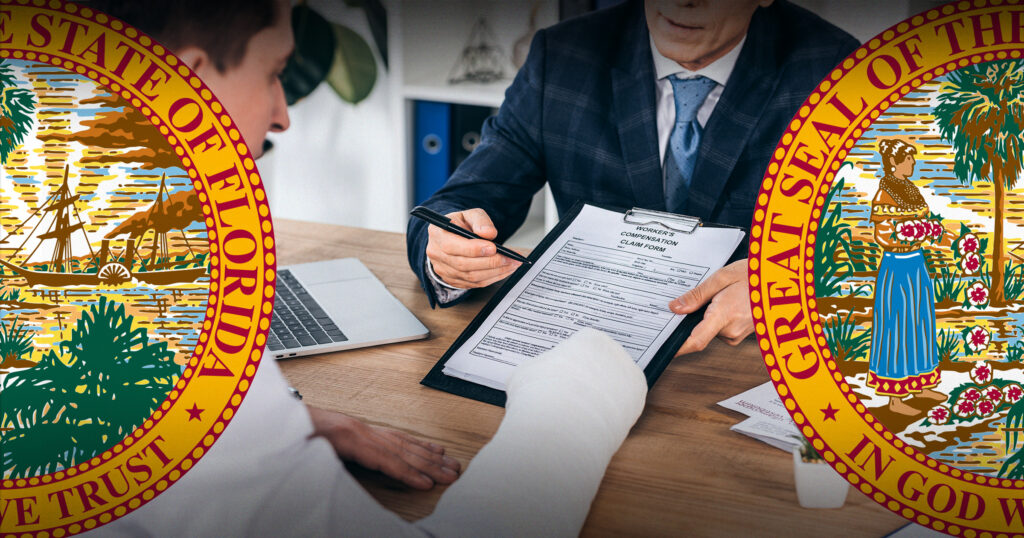Introduction
Workers’ compensation insurance is a vital part of the employment landscape in Florida. It protects both employees and employers by providing financial coverage for workplace injuries.
In this article, we will explore the essential aspects of Florida’s workers’ compensation insurance, including its history, legal framework, benefits, and how to navigate the system.
Understanding Workers Compensation Insurance

Workers Compensation Insurance Construction
What is Workers Compensation Insurance?
Workers’ compensation insurance is a form of insurance providing wage replacement and medical benefits to employees injured in the course of employment.
In Florida, this insurance is crucial for maintaining a safe workplace and protecting workers’ rights.
History of Workers Compensation in Florida
The roots of workers’ compensation in Florida trace back to the early 20th century, when workers began advocating for safer working conditions and financial protections.
The Florida Workers’ Compensation Act was established in 1935, marking a significant shift in how workplace injuries were handled.
Legal Framework
Florida Workers Compensation Laws
In Florida, the Division of Workers’ Compensation, part of the Department of Financial Services, regulates workers’ compensation laws.
These laws dictate how claims are processed, the benefits available, and the responsibilities of employers.
Who is Required to Carry Workers Compensation Insurance?
Most employers in Florida are required to carry workers’ compensation insurance if they have four or more employees.
However, construction companies must provide coverage if they have one or more employees. Understanding these requirements is crucial for compliance and worker protection.
Exemptions from Coverage
Some categories of workers, such as certain agricultural workers and independent contractors, may be exempt from the requirement to carry workers’ compensation insurance. However, exemptions can vary, so it’s essential to consult legal guidelines.
Benefits of Workers Compensation Insurance

Top 10 Life Insurance Plans in California
Medical Benefits
One of the primary benefits of workers’ compensation insurance is coverage for medical expenses related to workplace injuries. This includes hospital stays, surgeries, and rehabilitation services.
Wage Replacement
In addition to medical benefits, injured workers are entitled to wage replacement. This compensation typically covers a portion of the employee’s lost wages during their recovery period.
Vocational Rehabilitation
If an injured worker cannot return to their previous job, workers’ compensation may cover vocational rehabilitation services.
These services assist individuals in learning new skills and finding new employment opportunities.
Filing a Claim
Steps to File a Workers Compensation Claim
- Report the Injury: The first step is to report the injury to your employer as soon as possible. This notification is critical for starting the claims process.
- Seek Medical Attention: Obtain medical treatment for your injuries. Ensure your healthcare provider knows that the injury is work-related.
- Complete a Claim Form: Your employer should provide you with a claim form. Fill it out completely and submit it promptly.
- Submit Documentation: Include any necessary documentation, such as medical records and witness statements, to support your claim.
Common Challenges in Filing Claims
Filing a claim can be fraught with challenges. Common issues include delayed claim processing, disputes over the cause of injury, and disagreements over the extent of injuries.
Understanding these challenges can help workers prepare and navigate the system more effectively.
Employer Responsibilities
Maintaining Safe Work Environments
Employers in Florida have a legal obligation to maintain safe work environments. This includes adhering to safety regulations and providing necessary training to employees.
Reporting Injuries
Employers must report workplace injuries to their insurance carrier within seven days of receiving notice. Failure to do so can lead to penalties and complicate the claims process.
The Role of Insurance Carriers
Choosing the Right Insurance Provider
Selecting a suitable workers’ compensation insurance provider is crucial for employers. They should look for carriers with a solid reputation, competitive rates, and excellent customer service.
Managing Claims
Insurance carriers play a significant role in managing claims. They assess the validity of claims, provide benefits to injured workers, and help employers comply with legal requirements.
Trends and Changes in Florida Workers Compensation Insurance

Best Credit Cards For Travel Rewards
Recent Legislative Changes
Florida’s workers’ compensation system is continually evolving. Recent legislative changes aim to enhance benefits for injured workers and streamline the claims process. Staying informed about these changes is essential for both employers and employees.
The Impact of COVID-19
The COVID-19 pandemic has significantly impacted workers’ compensation claims in Florida.
Many employees filed claims related to illness contracted at work, leading to changes in how claims are processed.
Tips for Employees and Employers
For Employees
- Stay Informed: Understand your rights and responsibilities regarding workers’ compensation.
- Keep Records: Document all communications related to your injury and claim.
- Seek Legal Help: If you encounter challenges, consider consulting with a workers’ compensation attorney.
For Employers
- Prioritize Safety: Implement regular safety training and audits to prevent workplace injuries.
- Educate Employees: Ensure employees are aware of their rights and the claims process.
- Review Insurance Policies Regularly: Evaluate your workers’ compensation policy to ensure it meets your needs.
Conclusion: Empowering Workers Through Understanding
Navigating workers’ compensation insurance in Florida can be complex, but understanding the laws, benefits, and processes can empower both employees and employers.
By prioritizing safety and being informed about their rights and responsibilities, workers can protect themselves and ensure a safer workplace.
FAQ Section
What should I do if I get injured at work in Florida?
Immediately report the injury to your employer, seek medical attention, and file a workers’ compensation claim.
How long do I have to file a claim?
In Florida, you generally have two years from the date of the injury to file a claim.
What if my employer doesn’t have workers’ compensation insurance?
If your employer is not insured, you may need to seek compensation through a personal injury lawsuit.
Can I be fired for filing a workers’ compensation claim?
No, it is illegal for employers to retaliate against employees for filing a claim.
What if my claim is denied?
If your claim is denied, you have the right to appeal the decision. It may be helpful to consult with a workers’ compensation attorney for guidance.
This article provides a thorough overview of workers’ compensation insurance in Florida, addressing various aspects of the system while adhering to your specifications. If you need any modifications or additional sections, just let me know!

1 thought on “State of Florida Workers Compensation Insurance”